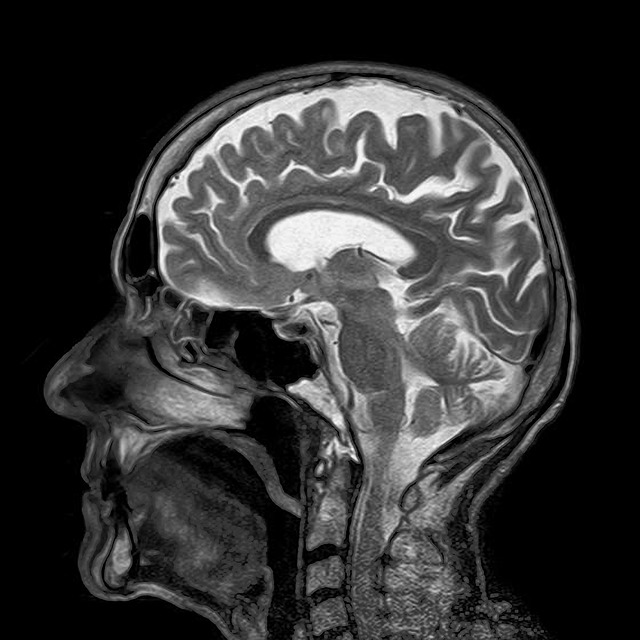7 Things you Should Never Say to Someone with a Migraine
I have suffered with Migraines all my life, and just like Anxiety, the hardest thing to deal with is not the internal pain, but the frustration that people around us simply do not understand.
So in this article I am going to try and dispel some of the myths that surround the condition and in turn I hope to educate just a few people who don’t understand – because if you yourself do not suffer, I can almost guarantee you know someone who does.
First a few facts about Migraines: What is a Migraine?
- A Migraine is not a headache. A migraine is a collection of neurological symptoms that together result in what is now described as the condition ‘migraine’.
- Migraines affect more than 10% of the entire population of the USA alone. That is 36 million men, women and children!
- Generally a migraine is an intense throbbing at one side of the head that can feel as if it is running down your cheek and into your teeth as well as all the way down your neck and spine.
- Attacks are generally accompanied by at least one (and often all) of the following: Visual difficulties, Nausea, Vomiting, Dizziness, extreme sensitivity to light, sound, touch and smell, a tingling or numbness in fingers, toes and even the face.
- In around 20% of attacks, most of these symptoms occur before the migraine itself.
- A migraine attack can last between 4 and 72 hours leaving the patient in pain and disorientated for days.
- The migraine ‘fog’ (generally lasting for a day or two after an attack) can leave you feeling disconnected and disoriented – meaning some sufferers can be inactive for up to a whole week!
- For many sufferers, headaches are a daily occurrence with migraine attacks being as frequent as once or twice a month and in extreme cases up to 15 times monthly.
- It is no surprise then that depression, anxiety and sleep issues are common for those who suffer regular attacks.
- More frequent and severe attacks can happen as a result in fluctuations of oestrogen. This means most women who suffer will find themselves having attacks at certain ‘times of the month’.
- Three times as many women as men suffer with migraines into adulthood and the most common ages to suffer are between 25 and 55, however, children can also suffer but go undiagnosed for many years. More than half of sufferers had their first attack before the age of 12.
Can you even imagine having that kind of pain and confusion running around your body at 12 years old?
So for those of you who know someone who suffers with migraines, here are some examples of the things you should NEVER say, and a few suggestions as to things to say that may well help.
1 – It’s because you are stressed. Stop stressing and the headache will go away.
Ok, no. Stress may be a trigger, but it is not the reason we get migraines. Migraine is a genetic and neurological disorder – we can be relaxed on a beach in the Bahamas with a cocktail in hand and get an attack.
Instead try saying “Is there anything I can do to help so you can go lie down?”. Because most of the time, we will be stressed out knowing we are having an attack and we can’t deal with daily chores. Take that stress from us so we can deal with the pain.
2- You don’t look sick.
How many conditions can you say this about? Depression? Anxiety? Bi-Polar? There are hundreds of conditions that people suffer with in silence, it does not mean their pain is any less! This is generally something people will say when you tell them at the very beginning of an attack. Because you don’t look sick yet. But then you can’t rip open your brain and have them look inside at the crossed wires and sparking neurons. It is not until an attack is in full swing that you will turn a greener shade of pale and then you will look sick.
Instead say “How high are you on the pain scale right now? Will it get worse? How can I help?” Most people who have attacks regularly can gauge how long it will take to go into a full blown pain meltdown. So ask How and When you can help. Because they may not look sick now, but they will need help.
3- Have you thought of changing your diet?
Yes, ok, so there are foods that will not help with migraines and a few foods that can act as triggers – but if someone has dealt with migraines for a long period of time they likely know this already.
Instead maybe say, “Tell me what you have eaten in the last few days, I’ll write it down and we can see next time if there is a correlation”. Everyone’s triggers are different, and instead of judging us, help us understand it – your support is all we ask for, we know you can’t fix us, but the support will help.
4- No headache can last that long. It can’t be that bad.
This should never ever be uttered to someone who sufferers with migraines. Honestly there are no suggestions I can give you as an alternative to this one. It simply needs to be understood that (and it is this simple) – Migraines are NOT headaches!
5- It can’t hurt that bad.
You have no idea. The burning pain of giving birth or the sheer agony of a c-section would be a much more pleasant experience than some of the migraines most people suffer with.
6- You really should do something about those headaches.
Again, they are not headaches! But thank you for that. No one who has ever suffered with the sheer pain of a migraine has ever considered getting help. Doctors will help give relief and there are pills and even injections that have been proven to help, but they will not fix the problem.
7- Take a pill
Even writing that made me laugh out loud. We do take pills. Every time. We take pills and potions and witchcraft until we find something, anything that might help. But it is not a headache and an Advil will not take it away. No two people are the same, some pills will work for some and not for others. It is a neurological condition and seeing as no two brains are the same, no two people will react the same to medication. Also – no two migraines are the same. Sometimes a pill will knock it out for a few days and other times you can rattle and shake with medication and still be as sick as a dog!
Migraines are horrendous. They are painful, debilitating and incredibly frustrating when no one understands the pain. So if you know someone who suffers, here are a few pointers you might want to keep in mind:
- Be patient. The attack could last days, but no one wants to get over it quicker than we do.
- Stock up on ice packs or cold wet flannels. Every now and again pop into the room and offer to replace it for us, it will save us having to get out of bed and face the pain of walking to the bathroom.
- Be kind – don’t ask a us why we are crying or what is wrong, because the answer will always be the same. We are in pain, and no as much as we love you, there is nothing you can do to help.
- Be understanding. The day following an attack will leave us foggy and disorientated. Don’t laugh at our clumsiness or lack of interest in food or activity. Allow us time to feel like we are back in the real world.
Share this! Share this story with all your friends and family. Tell people. Educate people, so that we don’t have to face remarks like “it’s just a headache” – because until people talk about it, the issue will forever be one that no one understands.
(Migraine statistics courtesy of The Migraine Research Foundation)











